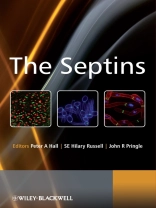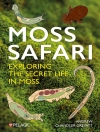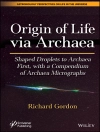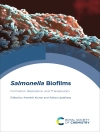‘The authors represent most of the key figures and the work and
the book as a whole is an essential reference for the newcomer or
specialist in this area and for any student of eukaryotic cell
structure and function. This is an important and wonderful
reference.’ -Microbiology Today, May 2009
Septins are an evolutionarily conserved group of GTP-binding and
filament-forming proteins that were originally discovered in yeast.
Once the preserve of a small band of yeast biologists, the field
has grown rapidly in the past few years and now encompasses the
whole of animal and fungal biology. Furthermore, septins are
nowadays recognized to be involved in a variety of disease
processes from neoplasia to neurodegenerative conditions.
This book name=’OLE_LINK1’>comprehensively examines the septin
gene family and their proteins, providing those new to this
research area with a detailed and wide ranging introduction to
septin biology. It starts with a unique historical perspective on
the development of the field, from its beginnings in the screen for
cell division mutants by the Nobel Laureate Lee Hartwell. The
evolution of the septin gene family then forms a basis for
consideration of the biochemistry and functions of septins in yeast
and other model organisms including C. elegans and
Drosophila.
A major part of the book considers the diversity of septins in
mammals, their functions and properties as well as their
involvement in normal and abnormal cellular states, followed by a
speculative overview from the editors of the key questions in
septin research and of where the field may be headed.
In addition, several appendices summarise important information
for those in, or just entering, the field, e.g. nomenclature and
septin and septin-like sequences.
This book is an essential source of reference material
for researchers in septin biology, cell biology, genetics and
medicine, in particular pathology, including areas of neurobiology,
oncology, infectious disease and developmental biology.
表中的内容
Contents
Authors and Affiliations vii
An introduction to the septins 1
Peter A. Hall, S. E. Hilary Russell and John R.
Pringle
Section I Setting the scene 5
Chapter 1 Origins and development of the septin field
7
John R. Pringle
Chapter 2 Evolution and conserved domains of the septins
35
Michelle Momany, Fangfang Pan and Russell L. Malmberg
Section II Septins in model systems 47
Chapter 3 Biochemical properties and supramolecular
architecture of septin hetero-oligomers and septin filaments
49
Michael A. Mc Murray and Jeremy Thorner
Chapter 4 Yeast septins: a cortical organizer 101
Yves Barral
Chapter 5 Septins in four model fungal systems: diversity in
form and function 125
Amy Gladfelter and Peter Sudbery
Chapter 6 Septins in the metazoan model systems
Drosophila melanogaster and
Caenorhabditis elegans 147
Christine M. Field, Amy Shaub Maddox, John R. Pringle and
Karen Oegema
Section III Septins in mammals 169
Chapter 7 The genomics and regulation of the human
septin
genes 171
S.E. Hilary Russell
Chapter 8 The functions of septins in mammals 187
Carol D. Froese and William S. Trimble
Chapter 9 Septin-interacting proteins in mammals 211
Brandon E. Kremer and Ian G. Macara
Chapter 10 Septin functions in the mammalian cytoskeleton
229
Elias T. Spiliotis and W. James Nelson
Chapter 11 Septins and the synapse 247
Jing Xue, Victor Anggono and Phillip J. Robinson
Chapter 12 Septins and platelets 269
Jerry Ware, Constantino Mart´inez and Barbara
Zieger
Chapter 13 Septins and apoptosis 281
Marie-Jeanne Carp and Sarit Larisch
Chapter 14 Septins and human disease 295
Peter A. Hall and Fern P. Finger
Chapter 15 Insight into septin functions from mouse models
319
Makoto Kinoshita
Section IV Envoi 337
Chapter 16 Septins: 2008 and beyond 339
Peter A. Hall, S.E. Hilary Russell and John R.
Pringle
Appendix A Septin and septin-like sequences 343
Michelle Momany, Fangfang Pan and Russell L. Malmberg
Appendix B Mammalian septin nomenclature 351
Peter A. Hall, Elspeth Bruford, Hilary Russell, Ian G. Macara
and John R. Pringle
Appendix C Septin meetings and workshops 355
Peter A. Hall and John R. Pringle
Index 361
关于作者
SE Hilary Russell, Senior Lecturer in Oncology, Centre for Cancer Research and Cell Biology, Queen’s University Belfast, Northern Ireland.
Peter A. Hall, Musgrave Professor of Pathology & Consultant Pathologist, Queens University Department of Pathology & The Royal Hospitals Trust, ?Belfast, Northern Ireland.
John R. Pringle, Professor of Genetics, Stanford University Medical Center, CA, USA.












